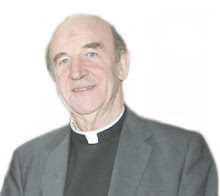Tuesday, July 17, 2012
Homily by Fr. Tom Stack at evening Mass in Milltown Parish Church on Sat. May 12th 2012
On the May Bank Holiday Monday (7/6/2012) I attended an unusual event in the Regency hotel on Dublin’s north side. It was a large gathering of over one thousand Catholic Christians, both lay folk and priests, who had come together at the invitation of the Irish Association of Catholic Priests. It was a moving experience at which we had heard from many of the participants who where disaffected due to the present state of their church here in Ireland. Indeed the tone of dismay there represented the mood of our citizens concerning other dimensions of our present national life, our betrayal by bankers, developers, and perhaps politicians too. The tone of much of the proceedings reflected the disillusionment felt by both laity and priests caused by the absence of follow through from the second Vatican Council (50 years ago this year) which had called all members of the catholic Christian family worldwide to a more participative role within our Christian community. The Council had proposed what can only be described as a ‘Copernican Revolution’ in the functioning of all the baptised within the structures and communal life of the church; beginning at parish level. By Copernican Revolution I refer to the astronomer of that name who first told us that the earth moved around the sun rather than vice v versa. ; The sun was the large radiant centre (the laity), the earth (the clergy) was in one sense essentially ancillary. In pastoral parish terms this translates as follows: instead of the laity seeing themselves as there to help the priest in the conduct and functioning of the parish; instead of this model it should, according to the Council’s vision, be the other way around. It is the priest who should exercise his ministry in the way of assisting the laity of the parish; as all, every single parishioner is called and is entitled to be co- responsible in the building up of his or her local Christian community.
Perhaps further teachings of the Vatican Council have also been allowed to suffocate ; notably the responsibility and right of local church leaders, in communion with each other and with the Bishop of Rome, to guide and promote the life of the universal church at local level, in accordance with the Council’s teaching on what is called episcopal collegiality.
Why do we remind ourselves this evening of all of this as we reflect on the scripture readings of this evening’s Mass? It is because we hear the teaching of Jesus Christ summed up in a brief but crucial injunction; the words of Christ which distil that entire he taught in one, both primitive and ultimate word. And that word is love! (It occurs eighteen times in the texts of the readings of this Mass). Jesus says it all, when he enjoins us to love one another. As we know, that may be often difficult to honour. But as we also know, that invitation of the Lord is both beautiful and liberating. When this manifesto of love is in any way blocked or muted then there is blockage in the Gospel teaching. If fearful institutional qualms somehow get in the way of the project of developing our loving communion as brothers and sisters in Christ, it is wrong. Pragmatic and political interests must not intrude on our Church’s evangelical purpose.
But returning to the pessimistic, conflictual mood of last Monday’s assembly in the Regency Hotel to which I referred: this present situation prompts the canny phrase coined by an American economist. He famously warned ‘a crisis is a terrible thing to waste’. There may be a crisis now in the Irish Christian community. Maybe it had to come to this to bring us to a moment of truth; a moment of truth that providentially, will stir our household of faith and hope into action; from bishops to priests to all the baptised. Our present state of affairs may well provide the spark that will awaken our determination to change and truly grow …… in love. I hope so.
Fr. Tom Stack
Subscribe to:
Posts (Atom)
